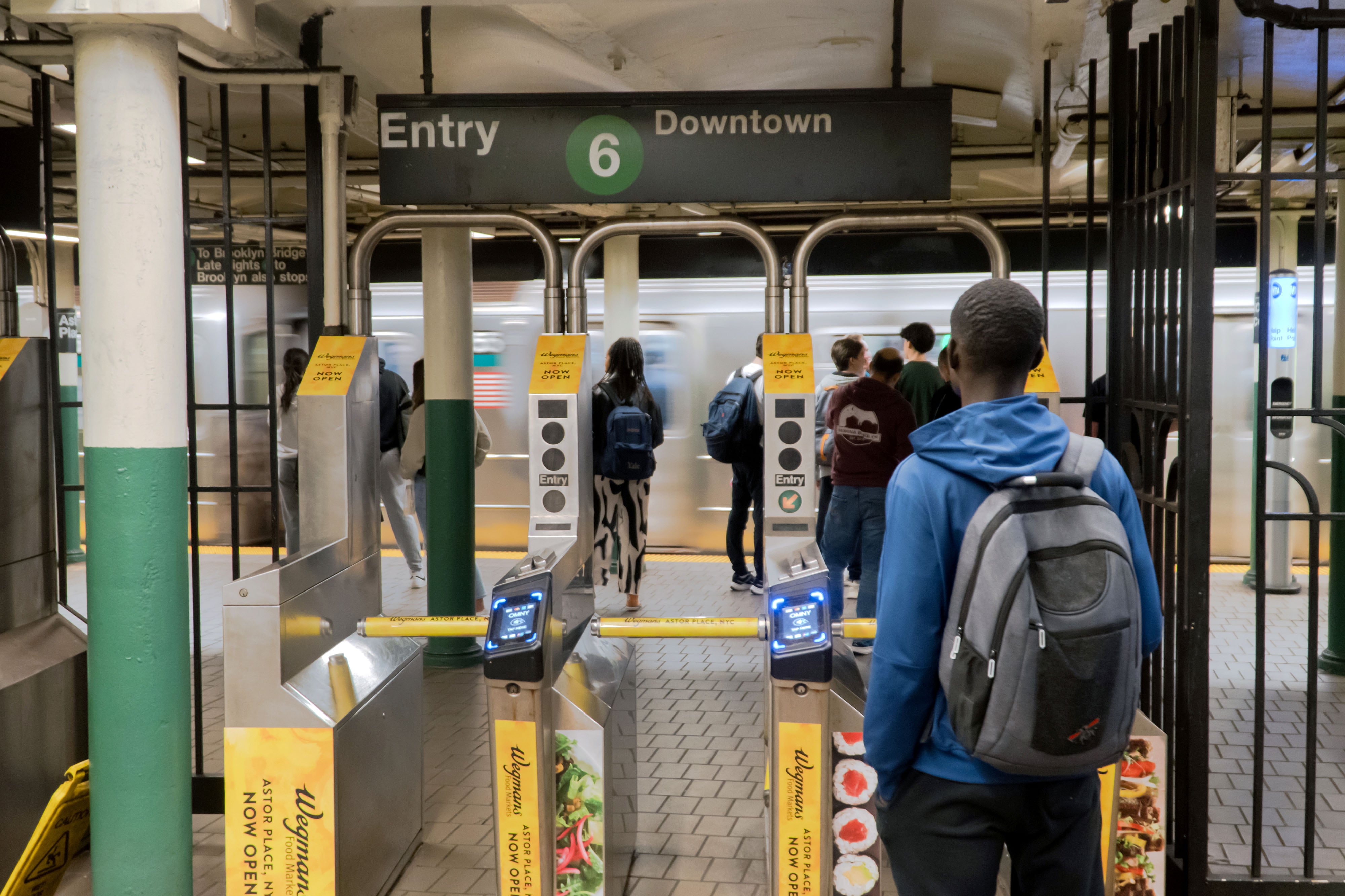Sign up for Chalkbeat New York’s free daily newsletter to keep up with NYC’s public schools.
Goodbye, student MetroCards.
New York City students will receive free OMNY cards in the coming school year, allowing for more flexible travel on weekdays and weekends, Mayor Eric Adams announced Thursday.
The new cards — which will be available for the 2024-25 school year — allow for four daily trips, and can be tapped 24 hours per day, seven days per week, for the entirety of the calendar year, city officials said Thursday during a press conference at Transit Tech High School in Brooklyn.
Previously, student-issued MetroCards allowed for just three free rides per day between 5:30 a.m. and 8:30 p.m. on school days. Students were issued new cards each semester, and couldn’t use them on evenings or weekends, which was a burden for students who come home late from internships or jobs or attend weekend classes or sporting activities. It also limited students who had to commute for other reasons, such as ferrying their siblings around. (Kids could only use MetroCards in the summer if they were enrolled in summer school.)
Now, students will receive one card that remains active until the start of the following school year. The initiative is supported by a mix of state and city funds. New York state will provide $25 million to the student OMNY card program, while the city contributes $50.5 million, up from $45 million, according to a press release.
“No more hourly restrictions, no more restrictions that you can’t use it on the weekends, and no more restrictions that you can’t use it out of the school year,” said MTA Chair Janno Lieber during the press conference. “It is about flexibility. That’s the difference.”
New York City’s subways and buses operate 24-hours a day all year, and the fare is $2.90 per ride for most straphangers.
The OMNY cards will allow students to travel on MTA subway lines, local, limited, and select buses, on the Staten Island Railway, the Roosevelt Island Tram, and the Hudson Rail link, according to a press release. Cards will be distributed by schools at the start of the year, with the MTA and Education Department partnering to promote card usage across the city’s school districts.
Students in K-12 grades who live half a mile or more from their school are eligible for the free transportation cards, according to the city’s Education Department. On Thursday, students from Transit Tech High School — which offers training for students interested in careers in the transit industry — praised the expanded flexibility of the new OMNY cards.
“I’m a student athlete, so we have games on Sundays and Saturdays, and not having the ability to travel for free, it kind of hurts sometimes,” said Malik Inniss, a student at the school, of the prior transit card rules. “As a full-time student, I don’t always have the ability to participate in internships and work.”
The new cards come as Adams has cracked down on fare evasion, increasing police presence in subways and suggesting links between fare evasion and violent crime.
“When it comes down to students, they are doing it out of necessity,” Adams said. “They are trying to get to school. They’re trying to pick up their niece, their nephew, their sibling, and they just don’t have the money to do so. We are attempting to make it easier to not have these young people have a record because they’re trying to carry out an activity that they must do.”
Julian Shen-Berro is a reporter covering New York City. Contact him at jshen-berro@chalkbeat.org.






